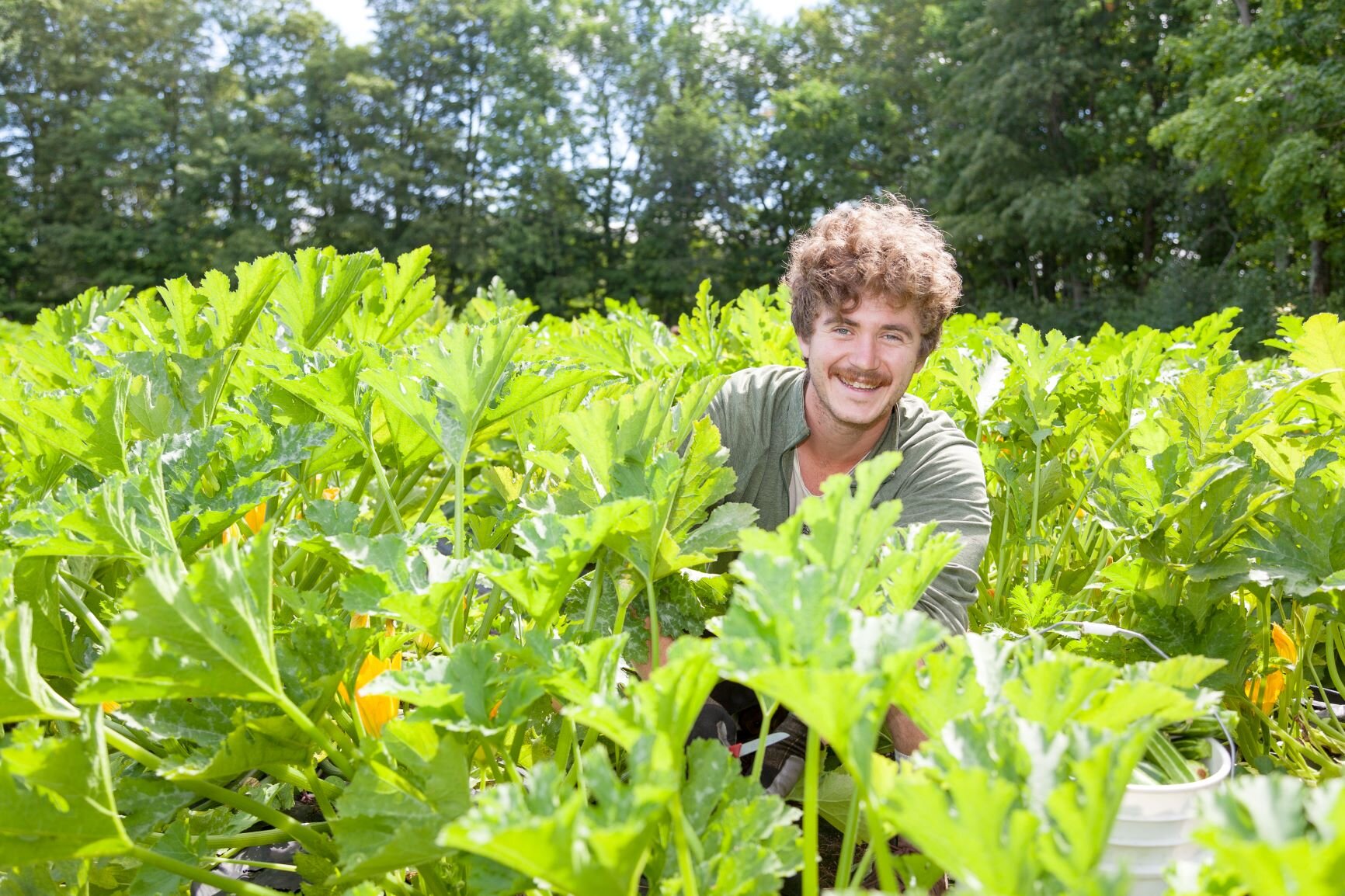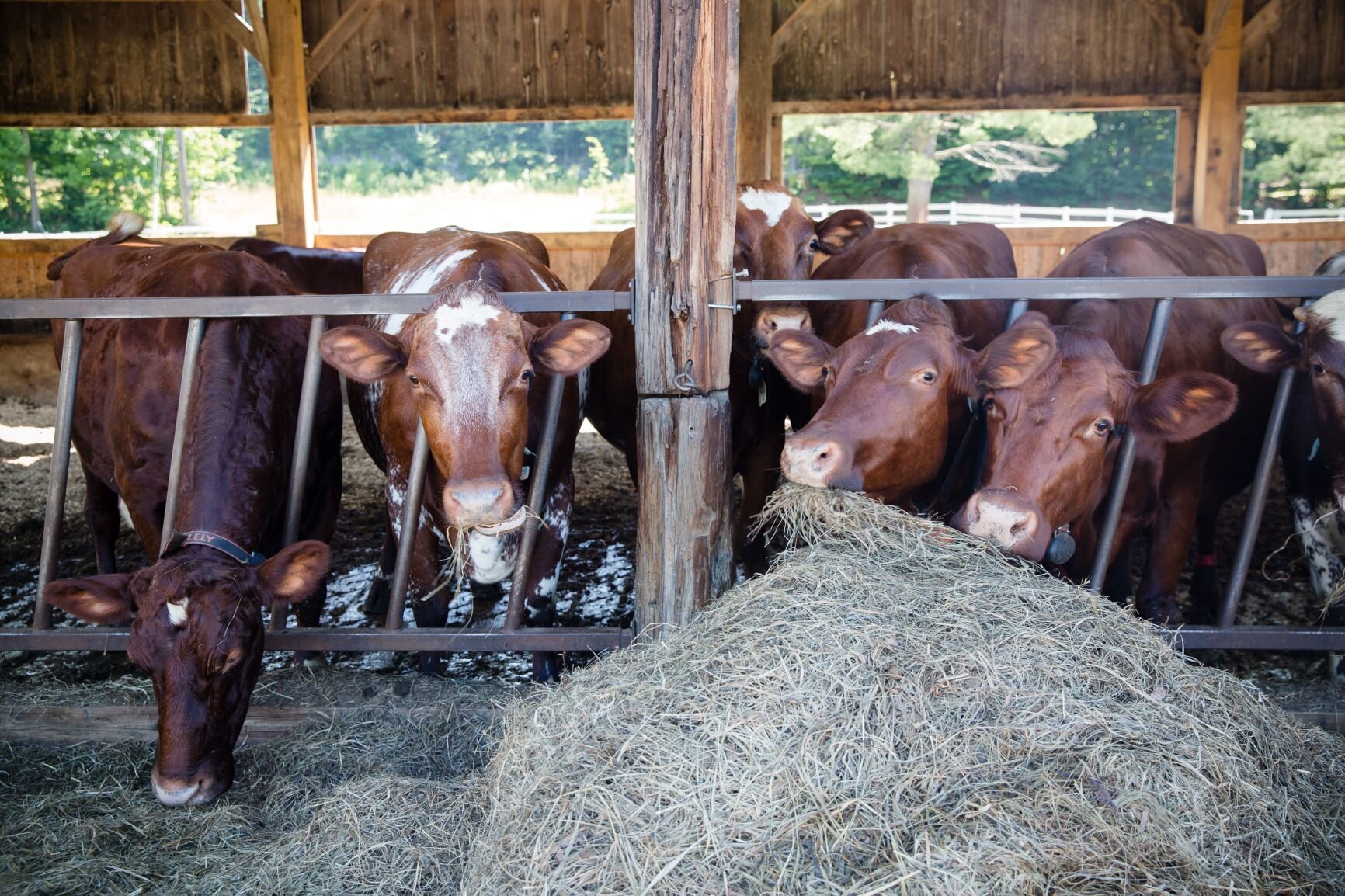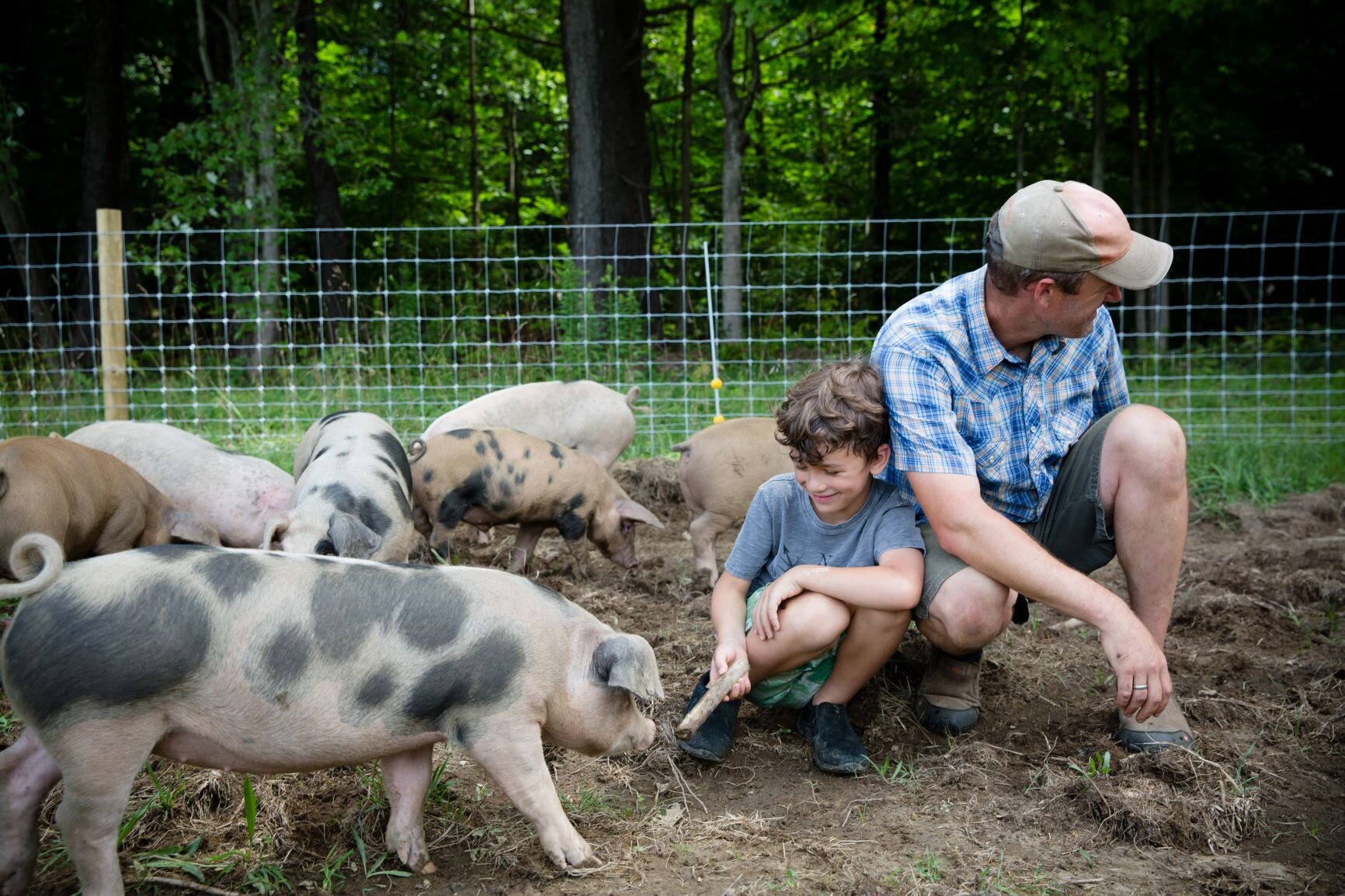As part of NH Eats Local Month the Monadnock International Film Festival (MONIFF), Monadnock Food Co-op (MFC), and Monadnock Farm and Community Coalition (MFCC) hosted a virtual screening of Locally Rooted—a locally produced documentary by 710 Main Films. Locally Rooted follows the story of four local farms and the impact that the Farm Fund, a partnership between MFC and the Cheshire County Conservation District (CCCD), has had on their farms.
Formed in 2017, the Farm Fund’s mission is to support local farmers in increasing sustainable food production and wholesale sales to contribute to a thriving local farm economy. The partnership between MFC and CCCD allows for a wide range of promotion and fundraising—through individual donations and the co-op’s Round It Up program. Farmers can apply to this local grant opportunity to help create vital infrastructure on their farms to continue to grow their business. The Farm Fund awarded over $59,000 in grants to 14 different farms, many of whom are Food Connects producers, since it began.
The film highlights the 2019 recipients of the Farm Fund and their infrastructure projects.
Archway Farm: Owned by Mark Florenz in Keene, NH, built a new walk-in freezer to store his own pasture-raised pork.
Echo Farm Puddings: Owned by sisters Beth and Courtney Hodge in Hinsdale, NH, updated their 20-year-old packaging machine for a more reliable and efficient machine that could add larger food service containers.
Tracie's Community Farm, LLC: Owned by Tracie Lock in Fitzwilliam, NH, added a 6-row seeder to increase productivity.
Manning Hill Farm: Owned by Sam Canonica and Sarah Costa in Winchester, NH, purchased a large, energy-efficient cooler to increase the storage capacity of their grass-fed milk.
The Locally Rooted event boasted a vibrant panel discussion with Mark Florenz, Beth Hodge, Jack Rixey (manager of Tracie’s Community Farm), and Greg Pregent, 710 Main Films filmmaker. One of the strongest points of discussion was how the process and details of this particular grant are helpful and different from other grant opportunities. The grant is easy to apply to, opening in late fall every year. And it is extremely flexible—there is a “tendency of a project to fit the grant” says Mark, versus.actully fitting the goals and needs of a farm. When Echo Farm was unsure about whether or not to purchase the new packaging machine, the infrastructure they knew they needed, the grant helped them take that plunge and on their terms.
This grant is unique for farmers, Beth noted, because it focuses on infrastructure, while other grants they come across are typically for marketing and development. “This program does an excellent job nudging farm on the cusp,” said Mark, helping scale-up small to medium-sized farms that will drive our local farm economy.
And local food increasingly at the forefront of community members’ minds. It is “very telling that most people turned to local farms (during COVID-19)” says Jack. Tracie’s Community Farm saw many new customers “come into the fold.” While not all may continue to purchase locally as their main source of food it is the foundation for future relationships. At Food Connects, our sales are increasing dramatically throughout the pandemic. Local food sales not only strengthen our local economy but also create more opportunities for community building and collaboration.
And the growth of these farms doesn’t stop here. There is a wide wishlist, from dry storage to alternative energy that will help fortify their positions in the local food market. Beth put it perfectly, that there’s “gotta be ways we can help each other,” through increased community partnerships and support for local businesses. We are excited to collaborate and grow with these farms and look forward to seeing the recipients for 2021!



